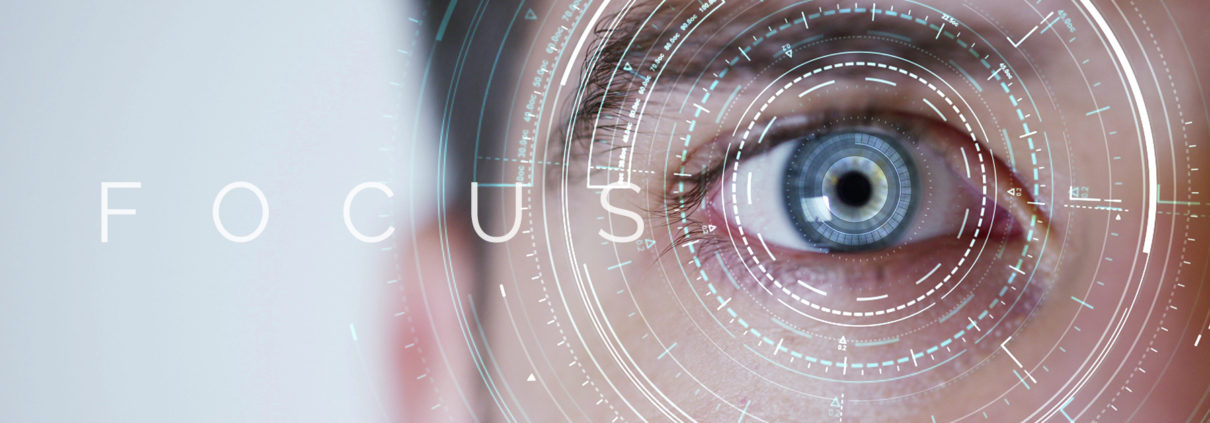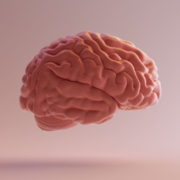The Art of Focus: How to Reclaim Your Mind in the Modern World
What resource has the highest value in this day and age? Is it money, is it time? More and more experts in wide and varied fields ranging from economics to neuroscience now agree… it’s energy, and the ability to direct it to a single point, using an ability we call focus.
Indeed its true, that each of the above resources has its merits. But best selling authors and productivity gurus such Timothy Ferriss tell us that money without time has no value. While others still like Tony Shwartz author of “The Power of Full Engagement” make the compelling case, when it comes to acts of creation, it’s focussed energy that gets the job done.
In his cautionary TED talk about the dangers of distraction, Dr. Cal Newport, author of the best seller “Deep Work” goes so far as to say that the ability to focus deeply and see tasks through to completion is the single most valuable ability in our society today. Where top neuroscientists and behavioral psychologists are recruited to build a barrage of brain eating distractions that use persuasive technology such as (insert favorite social media platform), it’s safe to say that the competition for our attention is real and fierce.
Yes, constant scrolling, swipes, links and likes make it difficult for us to focus but their effect on our brains may be far more insidious. Numerous studies now show how our ultra-connected world is literally rewiring our neuronal circuits, changing the way we think, and depleting our brains of key nutrients and metabolites.
Even for those who recognize the value of focus as their power of creation, now wage an uphill battle to counteract de-conditioning and reclaim their full cognitive function. This is often where caffeine, supplements and smart drugs enter the equation. And when their short-lived effects wear off, they rebound into dependency which results in further depletion.
Ego Depletion: The Enemy of Focus
In August of 2011, the article “Do you suffer from decision fatigue” appeared in the New York Times which highlighted a literal century’s worth of research (dating back to Freud’s hypothesis that mental activity is directly related to transfer of energy in the brain) surrounding the phenomenon of mental depletion. The research that came to light in the wake of that article and others like it, all points to a biochemical explanation as to why our ability to focus wanes over time, and how this waning is accelerated by our modern way of life which includes heightened stress levels, reduced micro-nutrient intake, and chronic exposure to information and technology.
One recent study showed that doctors who were on call, experienced significantly less ability to rest and refresh themselves regardless of whether they were called into work. It seems that the simple act of keeping ourselves ever oncall – always on the lookout for incoming emails, messages, posts and updates is sufficient in preventing us from fully recovering our necessary cognitive function.
A healthy system experiences regular bouts of depletion (exertion) and repletion (recovery). Anyone who’s partaken in any sort of athletic training, whether strength or endurance based, knows that progress can only be made with adequate recovery. Due to the nature of physical exertion, key energy sources such as creatine phosphate and glycogen are utilized and depleted and must be replenished with rest and nutrition before another workout can be done. The brain is no acception. Just like any other organ or system in the human body, it too must be replenished after use. Yet because we don’t feel our brains working in the same way that we feel our muscles, we sometimes forget this fact and place evermore demands on ourselves without also repleting and feeding our brains what they need.
NAD+ (nicotinamide adenine dinucleotide) is a coenzyme found in all living cells, particularly brain cells, which is responsible for converting nutrients into usable energy. Mounding research now suggests that the act of focussing intensely may wear you down on a biochemical level by depleting the brain’s reservoir of NAD+. And while some of this reservoir may replenish (if proper rest is had) there seems to be a diminishing supply of NAD from the time we are born throughout the aging process. That is why doctors and scientists are so hopeful about the supplemental use of NAD+ as well as certain precursors shown to increase levels of its production.
“NAD+ is the closest we’ve gotten to a fountain of youth,” says David Sinclair, co-director of the Paul F. Glenn Center for the Biology of Aging at Harvard Medical School. “It’s one of the most important molecules for life to exist, and without it, you’re dead in 30 seconds.” – The potential for its anti-aging benefits is but one of the many uses that have been studied in recent NAD+ research. Another area of interest, and our focus here, is cognitive enhancement. Because NAD+ plays a key role in cellular respiration, and the brain is comprised of a dense network of cells on which high demands for energy are placed, it follows and the research suggests that repleting stores of NAD+ can increase the energy potential and thus, performance output of the brain.
Reclaim Your Brain – Get Back in the Zone
The following strategies comprise the top 3 tips that you can implement starting now, to reclaim your brain and increase your capacity for focus and concentration.
1. Set Positive Constraints – Regardless of what supplements you take, one of the best ways to protect your focus is to reduce your exposure to brain draining distractions. As we’ve discussed, NAD+, this “molecule of life” is depleted more readily by prolonged bouts of even mild distraction (e.g. waiting for a call or email). Using a simple application like Moment may help you by increasing your awareness of when you’re being distracted and how often, and gently begin to shift your behavior to allocate your mental resources in a manner that is more effective.
2. Prioritize Proper Nutrition – For every molecule of alcohol, two molecules of NAD+ are required to metabolize and escort the substance out of the system. Food products that are void of micronutrients also take a huge toll on our precious stores of NAD+ and provide us with little or not benefits in return. Until (and even while) supplementation is added, a core strategy for focus should be to preserve the brains resources as much as possible. Eating nutrient rich foods, while avoiding those like alcohol that offer little positive benefits, is a great way to do that.
3. Proactive Supplementation – Most supplements claiming ‘nootropic’ benefits are designed to give you a short term jolt of energy which is often accompanied by a crash and reduced level of nutrients required not only for brain function but also for long term brain health. This is not the type of supplementation an integrative doctor would advocate. Nadovim, on the other hand, was formulated by a leading integrative MD and clinically demonstrated to actually replenish the brain’s necessary reserves of NAD+ which we now understand is perhaps the key metabolite responsible for liberating cellular energy needed for focus and cognitively demanding tasks. When combined with the strategies above, Nadovim is proving itself an unparalleled supplement for improving brain health, focus and concentration.
Head physician, Dr. Thomas, K. Szulc and his team at the New York Center for Innovative Medicine created Nadovim with the goal of availing the benefits of NAD+ to people beyond just the clinical setting. “We are witnessing a crisis of brain function decline” said Dr. Szulc to a room full of colleagues in a recent seminar on brain health and longevity. He went on to explain how Nadovim helps to combat this crisis by restoring the brain’s ability to repair oxidative damage, combating fatigue, cleans and heal itself, and enhance overall cognitive function.
The Bottom Line
- Focus and brain energy are your highest value resources
- Our modern world is geared to distract focus and deplete brain energy.
- Lifestyle changes such as limiting exposure to distracting technology and including proper nutrition can help to mitigate the damaging effects but do not rebuild, repair, and replenish the energy generating processes in brain cell mitochondria.
- To help resolve the growing crisis of brain function, integrative physician, Dr. Thomas K Szulc formulated a supplement specifically to address the problems pointed out in this article. Nadovim works by repleting stores of NAD+ which functions by converting nutritional energy into functional energy in the brain – the kind used for focus and concentration.
Disclaimer: The statements made in this article have not been evaluated by the Food and Drug Administration. Any products or treatments mentioned are not intended to diagnose, treat, cure, or prevent any disease. Please consult a licensed medical practitioner for medical advice.
At Innovative Medicine, we believe in transparency. We want you to know that we may participate in affiliate advertising programs pertaining to products mentioned herein.
See how we can help you restore complete health of body, mind & spirit.
Join our mailing list and receive exclusive offers + information!







Trackbacks & Pingbacks
[…] Related: The Art of Focus: How to Reclaim Your Mind in the Modern World […]
Leave a Reply
Want to join the discussion?Feel free to contribute!